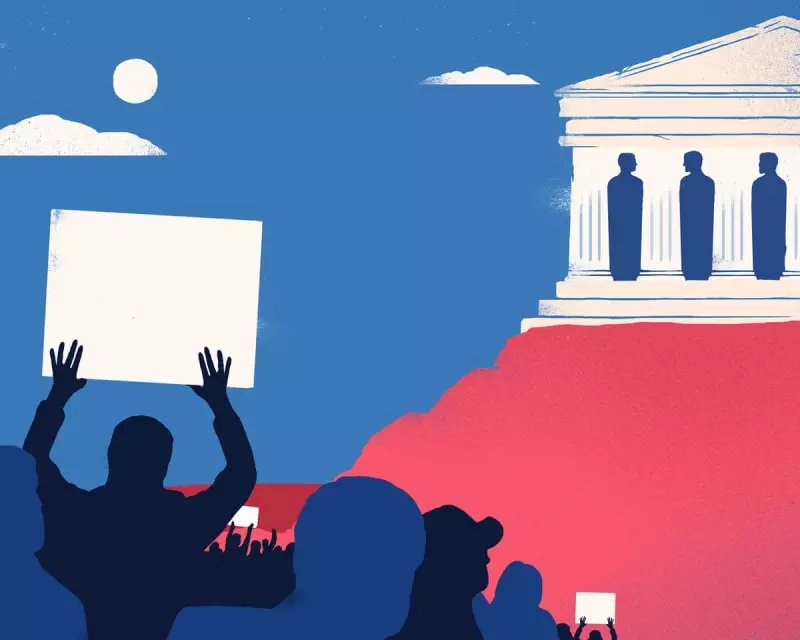
As nationalist populism gains ground across Western nations, the urgent question becomes: how can we protect our democracies from internal threats? Historian and political writer Timothy Garton Ash argues that merely keeping populists out of power isn't enough - we must reinforce democratic institutions to withstand their assault when they inevitably gain office.
The Wrong Approaches: What Doesn't Work
Germany's concept of wehrhafte Demokratie (defensive democracy) has prompted discussions about banning the far-right Alternative für Deutschland (AfD). However, Garton Ash warns this strategy would backfire, reinforcing supporters' belief in an elitist conspiracy and granting the party martyr status.
Similarly, France's cordon sanitaire approach, where multiple parties unite to exclude Marine Le Pen's National Rally, has proven counterproductive. The broad coalition struggles to implement necessary reforms while Le Pen's party criticises from the sidelines.
The Netherlands offers a more promising model. When Geert Wilders' populist party entered government, it failed to deliver, withdrew from the coalition, and ultimately lost the subsequent election to Rob Jetten's liberal party.
Essential Democratic Defences
Proportional representation provides crucial protection. While two-party systems like America's can function well normally, they become dangerous when a populist captures one major party. Proportional systems force populists to compromise with coalition partners, as seen across continental Europe.
Electoral administration matters more than many realise. America's fragmented system across 50 states invites gerrymandering and voter suppression tactics that Republicans are actively pursuing ahead of upcoming elections.
Public service broadcasting represents a vital democratic lifeline. As digital platforms fragment public discourse, trusted broadcasters like the BBC, CBC, and Germany's public networks provide shared factual ground. Britain's current undermining of the BBC represents a profound act of national self-harm that weakens democratic resilience.
Institutional Safeguards Against Democratic Erosion
Media ownership has become authoritarianism's modern tool. In Hungary and Turkey, leaders' cronies control key media outlets while maintaining the illusion of pluralism. There's no one-size-fits-all solution - foreign ownership has damaged British newspapers while protecting democracy in post-communist nations like Poland.
An independent judiciary remains fundamental to democratic survival. Poland's current judicial chaos demonstrates what happens when rule of law collapses. Recent incidents in Germany, where a constitutional court appointment was sabotaged by rebel conservatives, show even established democracies can falter at critical moments.
Civil service neutrality faces direct assault in the United States, where the Heritage Foundation's Project 2025 advocates subordinating administration to executive control. The Justice Department has already seen hundreds of officials dismissed or resigned, followed by indictments of outspoken critics.
Surprisingly, constitutional monarchy may offer democratic protection. As American scholar Tom Ginsburg noted, when anti-liberal populists claim to represent the nation, a non-partisan monarch occupies that symbolic space. For nations like Britain, Sweden and the Netherlands, preserving their monarchy paradoxically strengthens democracy.
Other areas requiring vigilance include security services, military independence, universities, and the corrupting influence of big money in politics. Constitutional protections provide foundation, but as James Madison noted, parchment barriers alone cannot guarantee liberty.
The People's Role in Democratic Defence
Ultimately, institutional safeguards require public vigilance. Recent preparations by Czech citizens to defend their public broadcasters - on the streets if necessary - demonstrate the commitment needed.
The painful lesson from Poland's democratic backsliding and America's looming crisis is that destruction comes easier than reconstruction. Once essential checks and balances are lost, restoring them proves enormously difficult. For liberal democracy, as with health, prevention dramatically outperforms cure.
The time to reinforce democratic institutions is now, before populists gain the power to dismantle them from within.





